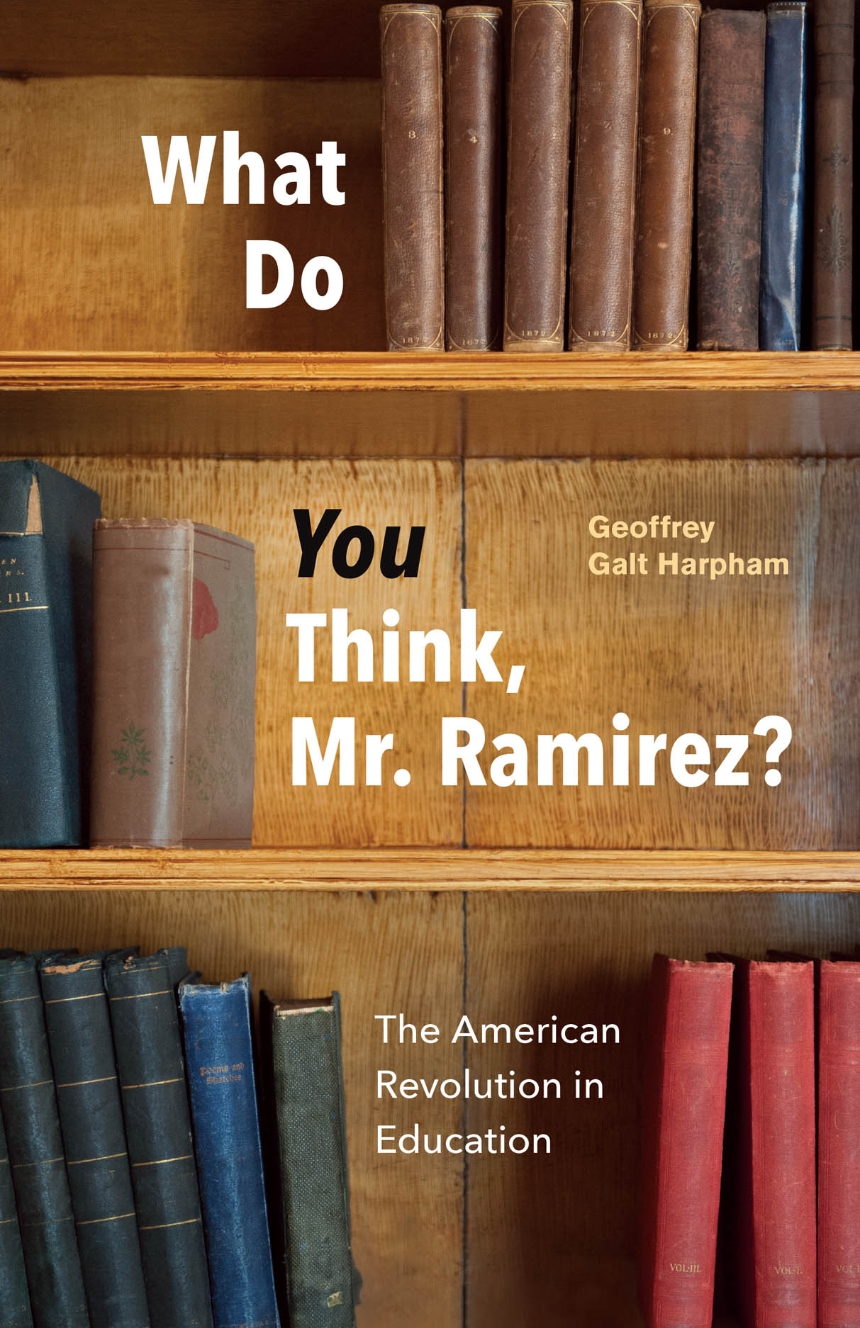What Do You Think, Mr. Ramirez?
The American Revolution in Education
9780226480817
9780226480787
9780226480954
What Do You Think, Mr. Ramirez?
The American Revolution in Education
Geoffrey Galt Harpham’s book takes its title from a telling anecdote. A few years ago Harpham met a Cuban immigrant on a college campus, who told of arriving, penniless and undocumented, in the 1960s and eventually earning a GED and making his way to a community college. In a literature course one day, the professor asked him, “Mr. Ramirez, what do you think?” The question, said Ramirez, changed his life because “it was the first time anyone had asked me that.” Realizing that his opinion had value set him on a course that led to his becoming a distinguished professor.
That, says Harpham, was the midcentury promise of American education, the deep current of commitment and aspiration that undergirded the educational system that was built in the postwar years, and is under extended assault today. The United States was founded, he argues, on the idea that interpreting its foundational documents was the highest calling of opinion, and for a brief moment at midcentury, the country turned to English teachers as the people best positioned to train students to thrive as interpreters—which is to say as citizens of a democracy. Tracing the roots of that belief in the humanities through American history, Harpham builds a strong case that, even in very different contemporary circumstances, the emphasis on social and cultural knowledge that animated the midcentury university is a resource that we can, and should, draw on today.
That, says Harpham, was the midcentury promise of American education, the deep current of commitment and aspiration that undergirded the educational system that was built in the postwar years, and is under extended assault today. The United States was founded, he argues, on the idea that interpreting its foundational documents was the highest calling of opinion, and for a brief moment at midcentury, the country turned to English teachers as the people best positioned to train students to thrive as interpreters—which is to say as citizens of a democracy. Tracing the roots of that belief in the humanities through American history, Harpham builds a strong case that, even in very different contemporary circumstances, the emphasis on social and cultural knowledge that animated the midcentury university is a resource that we can, and should, draw on today.
224 pages | 5 1/2 x 8 1/2 | © 2017
Education: Higher Education, Philosophy of Education
History: American History
Literature and Literary Criticism: General Criticism and Critical Theory
Reviews
Table of Contents
Preface
I The American Revolution in Education
II Rights of the Pryvat Spyrit: From Dissent to Interpretation
III The Peculiar Opportunities of English
Postscript: In Praise of Depth
Notes
Index
I The American Revolution in Education
Mr. Ramirez Comes to America
Teaching the Intangibles: General Education in Postwar America
Limitations of the Whole Man
Breaking the Stranglehold of the Present
James B. Conant, American Radical
Teaching the Intangibles: General Education in Postwar America
Limitations of the Whole Man
Breaking the Stranglehold of the Present
James B. Conant, American Radical
II Rights of the Pryvat Spyrit: From Dissent to Interpretation
From Separation to Society
From Faith to Fiction
From Origin to Originalism
From Eloquence to Abolition
From America to English
From Faith to Fiction
From Origin to Originalism
From Eloquence to Abolition
From America to English
III The Peculiar Opportunities of English
English and Wisdom
The Meaning of Literature
The Birth of Criticism from the Spirit of Compromise
I. A. Richards and the Emergence of an American Humanities
Turning Science into the Humanities: The New Criticism
The Persistence of Intention
The Meaning of Literature
The Birth of Criticism from the Spirit of Compromise
I. A. Richards and the Emergence of an American Humanities
Turning Science into the Humanities: The New Criticism
The Persistence of Intention
Postscript: In Praise of Depth
Notes
Index
